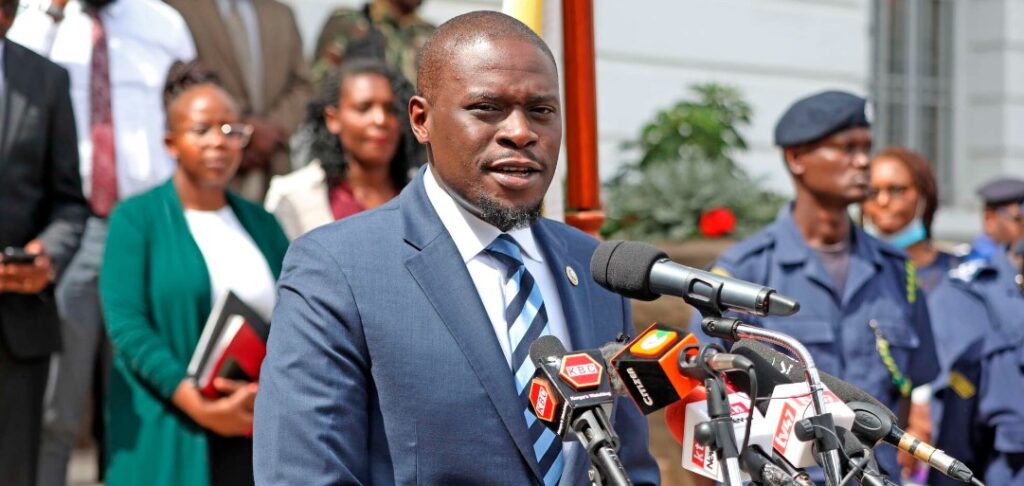A massive Sh180 billion will be required to fully regenerate Nairobi’s polluted rivers, Governor Johnson Sakaja has revealed, as the county intensifies efforts to restore the Nairobi, Mathare and Ngong river ecosystems. Sakaja said the cost of restoring each river to its original state averages Sh60 billion, a figure the county cannot raise without national government support.
Appearing before the Senate Lands Committee, the governor defended the ongoing Nairobi Regeneration Programme, insisting that his administration did not carry out last year’s controversial demolitions along riverbanks. He clarified that the county only designated the areas as special planning zones, while the actual demolitions were conducted by the national government.
“Our administration did not demolish any structures. Declaring special planning areas was simply a planning step, and we engaged local communities,” Sakaja said. He was accompanied by Korogocho residents and officials from the Nairobi Rivers Commission, who were responding to a petition on alleged inhumane demolitions.
While condemning the manner in which residents were displaced, Sakaja reaffirmed his commitment to the regeneration programme, highlighting its potential to improve livelihoods, safety and environmental health. “Cleaning the rivers protects those living along the banks, creates thousands of jobs and enhances sanitation and security,” he noted.
Key infrastructure components of the programme include the construction of a 60-kilometre trunk sewer line, the modernisation of the Kariobangi Wastewater Treatment Plant—set to increase capacity from 60,000 to 90,000 cubic metres per day—and a 50-kilometre sewer network expected to serve Nairobi for the next half-century.
The city is also developing 27.2 kilometres of non-motorised transport corridors connecting Naivasha Road to Lucky Summer, and preparing for the closure of the Dandora Dumpsite, which will be converted into a circular economy and waste-to-energy facility.
Beyond infrastructure, the programme has grown into a community-driven movement. Local groups, such as Komb Green Solutions in Korogocho, are actively leading clean-up and urban greening activities.
Sakaja said the initiative reflects a holistic vision for a cleaner, greener and more liveable Nairobi. “This is about restoring dignity, creating opportunities and building a city where residents can live safely and sustainably,” he said.

